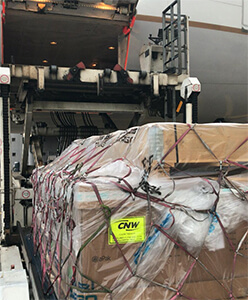How Has the Coronavirus Outbreak Impacted International Shipping?
From reduced air freight and courier capacity, the coronavirus outbreak has impacted international shipping. We want to help you navigate this unpredictable period, so we’re pulling together as many details as possible to help you figure out what measures can be taken.
Here is what we know at the moment regarding the effects of the coronavirus on international shipping:
Reduced Capacity with Fluctuating Rates

Most commercial airlines have suspended up to 85% of their operations. In a worst-case scenario, the Columbian airline Avianca, which is the second-longest-running airline in the world, is out of business due in part to governments imposing travel restrictions and confinement measures. Also, on May 26 LATAM, America’s largest airlines filed for bankruptcy.
Many logistics providers have also been affected by the pandemic; UPS, FedEx, and DHL have all reported several route suspensions, and as a result, we’ve seen air freight and carrier capacity drop to its lowest in three years.
Shipping options and rates are continually fluctuating with changing capacity and travel restrictions.
Prioritizing of Cargo
Most ports have established critical initiatives for coronavirus-related shipments. Cargo that has been categorized as essential, such as COVID-19 test kits and protective gear for medical professionals, received priority treatment and processing over non-essential goods like automotive parts.
Suspension of Hand Carry Service
As airlines continue to suspend flights and world leaders continue to advise against non-essential travel, handcarry options have all but disappeared. However, CNW’s team excels at finding unique solutions to get your essential goods to their destination on time.